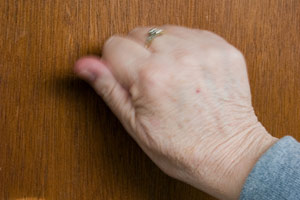


















 |
Getting
your property noticed is only part of the battle. This chapter
explains how to handle questions, calls, visits, and offers.
Open houses
When I sold my Sacramento rental several years ago, I held open houses every
Saturday and Sunday from 1 - 4 pm. I got much more traffic on
Sundays. In Northern California, at least,
there seems to be an unspoken rule that open houses are on Sunday
afternoons.
There
are several good reasons for FSBO sellers to host regular open
houses:
-
It
gives your house lots of exposure while it's nicely
staged. During my open houses, I would bake cookies, light
a roaring fire, and place bouquets of flowers throughout the
house.
-
There's
a chance that some agents will steer their clients away from
FSBO homes. Since buyers usually tour open houses on
Sundays without
their agents, you'll get a shot at these buyers.
-
Often
buyers will come who haven't yet begun working with a real
estate agent. That gives you an opportunity to explain to
them how they could save some money (and better afford your
house) by making an offer through a
discount broker or lawyer instead of a traditional agent. (Or you could hand
them a copy of my pdf-formatted flyer, How
to Buy a FSBO Property.)
 |
FSBO
sellers
sometimes complain about neighbors and "lookie-loos" who
come to open houses, but I love it when they come. I believe
that if prospective buyers see a house full of people, they might
worry about a rival offer and submit theirs more quickly. |
-
Before holding an open house, make sure your home is safe and
child-proof and that any small, valuable
items are securely locked away. After the open house, check
all the windows to make sure that none of the visitors unlocked
one.
-
Provide
a sign-in sheet so that visitors can give your their names and
phone numbers. This will let you contact them to announce
any price reductions. Many visitors won't want to
give
you their names, though. Don't press the issue.
 |
Make sure
you've hidden all your prescription
drugs before you show your house. Thieves often look for
these. |
Staging
your home
Here
are some tips for making your home more appealing during an open house or personal
showing:
-
Turn on all the lights, even in the middle of the day.
-
Open the curtain and shades to let
sunshine in.
-
Light a fire in the fireplace (unless it’s very warm).
-
Play soft music.
-
Get kids and pets out of the house.
-
Put out fresh flowers or
potted plants.
-
Bake cookies in the oven and share them with visitors.
-
Put down toilet seats and lids and put plush, colorful towels in
the bathrooms.
-
Make
sure the temperature of the house is comfortable.
 |
Don't
show your home to buyers--let them discover it on their own. |
Handling
phone calls
When
I sell a house FSBO, I like to give out my cell phone number so that
buyers and buyers' agents can reach me even when I'm out. If you use your home phone, be sure to
change the answering machine message so that callers know they've
reached the right number and that their call is welcome.
Buyers'
agents
Real estate agents usually call before they show your home, but they
sometimes don't give much advance notice. Indeed, it's common to
receive calls from agents who are parked in front of the house with
their clients. That doesn't leave a lot of time to pick up the dirty laundry.
 |
Buyers' agents will sometimes call if they spot your house
while driving clients around. They'll ask if you're
"cooperating," which is code for "Will you pay me a
commission if I find you a buyer?" If you are cooperating, be sensitive to the fact that the agent
will want to know the commission rate but may not want to
ask about it in front of clients. My standard answer to
these calls is, "Yes, I am cooperating, and the commission is
3%." |
After
the showing, I make a note of the agent's name and phone number.
Later in the day, you might want to make a follow-up call to thank the agent for showing the house and
to see if the buyer had any questions.
Prospective
buyers
When
prospective buyers call, they often don't have many questions
beyond, "Are you the one selling the house?" I usually ask
them if they'd like to hear my standard
sales spiel. If they agree, I say something like this:
"Well,
it was built in 1948 and it's got three bedrooms and one
bathroom. It's on a corner lot and has a recently remodeled
kitchen. It's biggest asset is its location. It's
surrounded by more expensive homes and about half a mile from some
of the most expensive homes in the city. It's also close to a
park and biking distance to downtown."
I
then invite them to ask questions and urge them to visit:
"I'd
be happy to arrange a personal tour or, if you want, you can come to
an open house this Sunday from one to four."
I
also give the internet address of the home, if I have a web page
devoted to it.
Listing
agents
In
the past, selling FSBO meant getting an avalanche of phone calls
from listing agents prospecting for clients. Fortunately, the Do-Not-Call
Registry has put a stop to a lot of that, since agents can be
fined if they call registered numbers to solicit listings. If you wish to file a
complaint, make a note of the phone number where you received the
call, the date of the call, and the name and number of the caller.
The
Do-Not-Call Registry rules don't, of course, cover calls from
buyers' agents. You want to receive those calls.
Unfortunately, listing agents sometimes try to get around the
Do-Not-Call rules by posing as buyers' agents.
The
Do-Not-Call Registry rules won't prevent listing agents from
visiting you at your open houses. If
you don't want to be bothered by any listing agents, try putting
"No listing agents, please" in your ads.
If you're approached by a listing agent, you may hear one or more of
the following lines. (Some were taken from
a listing agent sales script available on eBay.)
Listing agents may use this trick (called “buying a listing”) to
rattle you into signing a listing contract with them. If you
fall for it, the agent will typically raise the price, allow the
home to languish on the market for a month or so, then urge you
to bring the price back down. You lose in two ways: you’re stuck
with an unethical agent, and you waste precious time by having
your home on the market at an unrealistic price.
Be careful--some
agents offer free advertising in order to grab leads for their
businesses. The giveaway is that they use THEIR contact
information--not yours--on the ads. When buyers call, the agent
may tell the buyers about other properties, or offer to show
them your property in order to capture the buyer’s agent’s
commission. Either way, you lose.
Agents sometimes use this line to convert
FSBOs into listings, but if you want to see what they really
think, go to Craigslist.org and type “FSBO” as a search term.
You’ll find that lots of FSBO sellers are licensed real estate
agents selling their own homes. (State laws often require
owner/agents to disclose that fact in their ads).
The truth is that buyers’ agents are happy
to show FSBO homes if they’re priced competitively and if the
buyer’s agent’s commission is at least 2.5%. For one thing, it’s
a violation of the Realtor Code of Ethics and many state laws for
agents to steer buyers away from any listing. For another,
agents--even unethical lawbreaking ones--have a strong incentive
to show FSBO properties to their clients. If an agent refused to
show a FSBO home, the buyers could find it on their own and
contact the sellers directly. If they made an offer, the agent
would likely get cut out of the deal completely.
Mortgage brokers
will sometimes offer to do this, but don't let them.
First of all, pre-qualification requires
buyers to reveal their wealth and income. No shrewd buyer would
want to reveal that information to someone the seller picked out.
Second, mortgage brokers often hold real estate licenses. What’s
to prevent the broker from intercepting the buyer
in order to capture the buyer’s agent’s commission?
Third,
pre-qualification won’t protect you from unqualified buyers,
since it’s based on what the buyer says, not on any
documentation. Finally, if the broker is giving you a kickback
of any kind (e.g., free signs), both you and the broker may be
violating federal law. The Real Estate Settlement Procedures Act
(RESPA) “prohibits anyone from giving or accepting a fee,
kickback or anything of value in exchange for referrals of
settlement service business involving a federally related
mortgage loan.”
If you're worried
that a buyer can't afford your house,
it's reasonable to ask him or her to append a
pre-approval letter to any offer. You won't want to go to the
trouble of drafting a counteroffer or putting your house into escrow, only to find
out the buyer can't afford the house. Refer buyers to
the Mortgage Professor for
advice on how to shop for a loan and get pre-approval. For
more information, see this
article in Realty Times.
You always run the risk of theft when strangers some into
your home, but you’re
probably better able than an agent to size up visitors and
protect yourself from them.
“Errors and
omissions” insurance protects agents from litigation in the
event that the paperwork wasn’t handled properly, and listing
agents often tout this insurance as a reason to hire them to
help with the paperwork.
Don't fall for it.
E & O
insurance is
generally designed to protect
the agent, not the seller. If an agent is sued by a buyer, the
agent’s insurance company often responds by suing the seller. Indeed,
a former litigation counsel for a Fortune 500 real estate
brokerage once told me that sellers are usually better off if the agent
doesn’t have E & O insurance.
The best way to
protect yourself from litigation is to be open and honest about
any problems with your property, and to have an experienced
broker or attorney review all your documents before you submit
them.
Some agents will ask that you sign a standard exclusive listing
contract as a condition for showing your house. Don't do
it.
Instead, consider
signing a Single Party Listing Agreement, which allows the agent
to receive a buyer's agent's commission after showing the house
to a single, specified buyer (assuming the buyer makes a
successful offer). Before signing a Single Party Listing
Agreement, make sure the agent agrees to provide you with the
buyer's name within 24 hours. Be prepared to haggle over
the the commission. I think 3% is fair.
 |
Don't
ever take agents up on their offers to host your open houses for
you. By "showing" the house to open house
visitors, an agent can establish a claim to a commission if
a visitor later makes an offer. It's best to give
buyers the option of making their offers directly to you or
through a discount brokerage. |
 |
Listing agents will occasionally pepper you with obscure
questions about real estate law, then shake their heads
gravely if you don't know the answers. The idea is to
convince you that you're in over your head. But you
can hire a discount broker or real estate lawyer to
handle the paperwork for a fraction of what a listing agent
would charge. |
After
a week or so, the phone calls and visits will taper off, though one or two
agents will probably continue to call regularly. When I had my Sacramento
house on the market,
one agent called regularly to offer advice, and – without
my asking – did a CMA, brought signs over for me to borrow, and so
forth. Had I decided to
list with an agent, I certainly would have gone with him because
he’d been so helpful.
 |
Don’t call
listing agents too often for advice or help. Many are willing to
offer free help in hopes that FSBO sellers will sign with
them if they decide to go with an agent. But it's not
fair to ask for help if you have no intention of ever
signing with them. |
Scheduling appointments
Here
are some tips for scheduling personal appointments:
-
Don't
reveal when the house will be vacant--there's a remote chance
the caller could be a burglar. If you can't make a 2
o'clock appointment because you're at work all day, just say
that 2 o'clock doesn't work for you.
-
Don't
take off work or break off important social engagements to show a
house. Buyers often don't show up.
-
Try
to schedule the appointment during the day. Homes often
look gloomier at night.
-
Try
to schedule two or more showings during the same time
slot.
How
to handle awkward questions from prospective buyers
I've taught college-level economics for most of my adult life, and I
often have to resist the urge to provide lengthy answers to all
questions. But while you should always be truthful and freely
disclose any problems with the house, there are some questions you
shouldn't answer:
Don't
ever say anything that will reveal how much you're willing to come
down. When buyers ask this, I laugh engagingly and
say we haven't made up our minds yet. I then say that we'll
consider all reasonable offers.
It's
okay to answer this but don't reveal how eager you are to sell or
bring up problems with the house. Don't say, "I
got a job back east that starts in a week." Say,
"We plan to move back east." Don't say,
"We've made an offer on this house that we absolutely ADORE
but we have to sell this one first." Say, "We plan
to move into a larger house in the area." Don't say,
"We can't stand our neighbors." Say, "We hope
to move into a house that's better suited to our needs."
Here's
how I'd respond: "If you plan to make an offer within the
next few days, I'd be happy to let you know if another one comes
in. Otherwise, no."
Handling
the question this way encourages the prospective buyer to take
action and make an offer soon, or risk losing the house to someone
else.
Note that this is
what you should SAY, not what you should DO. If you get
another offer, you should call all prospective buyers with the
news, and invite them to make their own offers.
I
usually answer this question, but I avoid giving too much
information. Good answers might be "Yes, but the buyer
wasn't able to get a loan." or "Yes, but the deal fell
through." or "Not yet, but we've had some serious
nibbles." or "No, but we're expecting one in a few
days." Use these answers, of course, only if they're
true.
I'd
just laugh and say, "I don't think I'm supposed to answer that
one."
 |
People
may knock on your door without an appointment. Think through
in advance how to handle them. It's perfectly
reasonable to ask them to return later for a personal
tour. You can prevent many of these surprise visits by
putting a "Shown by appointment" rider on your
sign. |
 |
Don't
say anything to buyers that would reveal how much you're
willing to come down. |
Providing
information packets
If
buyers seem interested in the house, I offer them them information
packets to take home. Each packet contains the
following:
-
The
property's flyer.
-
A
copy of a standard form Offer to Purchase Real Property
contract (you can purchase these for about $20 at
Nupplegal.com.
-
An
appraisal of the property, if it's higher than the asking price.
-
A
parcel map and/or floor plan.
-
A
fact sheet giving monthly averages of utility bills (if you live
in an area with high bills).
-
A
paper with additional color photos of the property.
-
A
fact sheet with additional information about the property.
-
A
C.L.U.E.
report on the house (if you live in an area subject to fire
or floods or hurricanes or tornados or earthquakes).
I
keep some packets at the bottom of the stack that also include this:
I
give these special packets to buyers who haven't yet begun working
with an agent. They're somewhat expensive to produce, but I've found that buyers will
refuse them unless they're seriously interested in the property.
Dealing with
offers
I'm
almost always disappointed in the offers I receive. Buyers never
seem to understand how wonderful my homes are.
Unfortunately,
soul-crushing disappointment is often part of the selling process. But you need to shake it off when you get an
offer, and be as rational and realistic as you can. If you can
stay cool, you may be able to coax a larger offer out of the buyer.
Some
tips:
-
You
usually have three days to respond to an offer.
-
Unless
the market is very slow, most buyers will expect you to make a
counteroffer at a higher price.
-
If there are other
people who have expressed an interest in your home, call them
right away and say you've received an offer (though don't tell
them the amount of the offer). Invite them to make their
own offers.
-
The offer should
include a deposit large enough to cover either the mortgage
payments or the rental value of the property for a month.
In California, at least, a check for the deposit is normally
made out to a title insurance or escrow company and held by the
buyer's broker until the offer is accepted. At that point,
the check is handed over to the title insurance or escrow
company. If the buyer defaults
on the contract, you get the deposit.
-
Offers
usually come with contingencies, which allow the buyer to get
out of the contract under certain circumstances. Buyers
usually want to be able to walk if (a) they can't get a big
enough loan; (b) there are unforeseen problems with the house
that the seller refuses to fix; and (c) the seller doesn't have
clear title to the property. (Click
here to read more.)
-
Some buyers want to make
the deal contingent upon the sale of the buyer's house. This
isn't much of a problem if the buyer's house is already in
escrow. If your buyer hasn't yet received an offer,
accepting such a contingency can by risky. If you accept such an offer, consider
adding a
kick-out
clause to your counteroffer.
Buyers sometimes set up the contracts so they can
easily wiggle out of them if better deals come
along.
Example
#1: In her offer, Betty Buyer made the deal
contingent on her getting a loan at a 5% interest
rate. Steve Seller agreed. Two weeks later, Betty
Buyer declared that she wasn’t able to get such a
loan, and she walked away from the deal with her
deposit. By specifying such a low interest rate,
Betty deliberately created a contingency that was
sure to fail—giving her an “escape clause.”
Example
#2: Bob Buyer made a low initial deposit of $1,000
on a $500,000 home, and agreed to increase the
deposit by $9,000 two days later. Sally Seller
agreed. On the day before escrow closed, Bob backed
out of the deal. His penalty? Just the initial
$1,000 deposit. Sally hadn’t noticed that she’d
agreed to a standard clause in the contract
specifying that only the initial deposit would serve
as liquidated damages in case the buyer defaulted.
|
-
Make
sure the buyer isn't asking for an excessive amount of time to
get a loan. If the deal isn't going to work out, you want
to be released as soon as possible.
-
Don't agree to
transfer possession of the property until 5 pm on the day escrow
closes. If the deed is recorded before then, you can
alwyas send them a note allowing them to take possession early.
-
If it's not possible or convenient
for you to transfer possession at close of escrow, ask the buyer if
you can rent the house for awhile.
-
You'll
sometimes get verbal offers. If a bid is very low (say 15%
or more below your estimate of the market value), tell the buyer
you're not interested. If the verbal offer is within 15%
of the market value, tell the buyer that you will only consider
offers that are made in writing. Urge the buyer to have a
discount broker or lawyer draft the offer. Don't haggle verbally over the
price. Doing so tips your hand without gaining you
anything.
-
Unless
you expect to get multiple offers, I would counter any serious
one. I would judge an offer to be serious if it's at
least 85% of your estimate of the market value of the property
(higher in a hot market) and if the buyer has made a reasonable deposit (say, 1% of the
offer price), and if the contingencies are acceptable to
you. If you have doubts about whether the buyer
can afford to pay for the house, you might ask that he or she
append a pre-approval letter to the offer before
you'll consider it.
-
In order for a seller to get financing, the
sales price must be in line with the appraised value of the
property. So even if the buyer is in love with the property,
the deal might not go through unless the appraised value
is close to the sales price.
-
If
you've agreed to an offer, you may want to accept backup
offers in case the deal falls
through.
-
If you get
multiple offers, set a date and time and ask each buyer to
submit his/her "best and final offer" by that deadline.
Set the deadline for two days away if the home has been on the
market for awhile, longer if it's new on the market.
-
The
highest offer isn't always the best. If you're getting
competitive offers, think about whether each buyer will be able
to close the deal.
Should you get help with the paperwork?
Selling FSBO doesn’t mean you have to handle the paperwork yourself.
When you get an offer from a buyer, you can representation from a
lawyer or discount broker for a small fraction of what you’d pay a
traditional agent.
I recommend that you do so. A good
broker or lawyer will help you negotiate your contract, prepare all
disclosures, coordinate inspections and appraisals, and maintain a
timetable to help ensure everything gets done on time. He or she can
also troubleshoot problems and “make deals happen.”
Many FSBO sellers mistakenly believe that
their escrow officer will handle all the paperwork, but that's not
quite true. Their role is simply to follow the parties’ escrow
instructions and prepare the documents necessary to close escrow.
They have no obligations with respect to the disclosures that need
to be made in order to comply with state law and avoid future
litigation. It’s not their responsibility to catch your mistakes or
offer advice.
Next
topic: Closing
ŠLori
Alden, 2008. All rights reserved.
|
 |